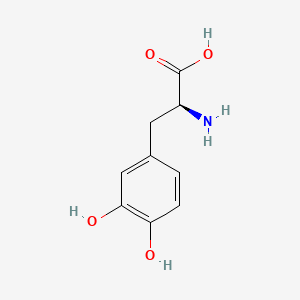In continuation of my update on Levodopa

Acorda Therapeutics, Inc. today announced that the U.S. Food and Drug Administration approved Inbrija™ for intermittent treatment of OFF episodes in people with Parkinson’s disease treated with carbidopa/levodopa. OFF episodes, also known as OFF periods, are defined as the return of Parkinson’s symptoms that result from low levels of dopamine between doses of oral carbidopa/levodopa, the standard oral baseline Parkinson’s treatment.
“Today’s approval of Inbrija marks a major milestone for both Acorda and the Parkinson’s community, for whom we are gratified to have developed this much needed therapy,” said Ron Cohen, M.D., Acorda President and CEO. “This milestone resulted from over two decades of research and development, beginning in the laboratory of Dr. Robert Langer at Massachusetts Institute of Technology, through years of enormous perseverance and ingenuity by the entire Acorda team.”
“Despite being on treatment, patients may experience OFF periods as Parkinson’s progresses, which can be disruptive,” said Todd Sherer, Ph.D., CEO, The Michael J. Fox Foundation. “The Foundation provided funding for the early clinical development of Inbrija because patients told us that OFF periods were one of their most serious issues. We knew we had to help address this unmet need, and this approval is a significant step forward for the community as it provides a new option to manage these gaps in symptom control.”
“In the clinical study program, Inbrija established its safety profile and demonstrated clinically meaningful improvements in motor function, as measured by the UPDRS Part III,” said Robert A. Hauser, M.D., MBA, Professor of Neurology and Director of the Parkinson's Disease and Movement Disorders Center at the University of South Florida. “Inbrija helps address a significant unmet need for people with Parkinson’s, and we look forward to adding this new treatment option to our armamentarium.”
FDA approval of Inbrija was based on a clinical program that included approximately 900 people with Parkinson’s on a carbidopa/levodopa regimen experiencing OFF periods. Inbrija is not to be used by patients who take or have taken a nonselective monoamine oxidase inhibitor such as phenelzine or tranylcypromine within the last two weeks.
“I’m delighted that Inbrija has been approved and may be added to patients’ existing Parkinson’s medications for on-demand use, based on individual patient need,” said Burkhard Blank, M.D., Chief Medical Officer of Acorda. “We thank the FDA for a constructive dialogue throughout the development program and their partnership during the review cycle. We especially thank all those who volunteered for the Inbrija clinical trials, without whose commitment new medications could not be developed. And we are grateful for the people living with Parkinson’s, their care partners, researchers, clinicians and advocacy groups, who have all collaborated with us to help achieve this milestone.”
------------------------------------------------------------------------------------------------------------------------
FDA Approves Inbrija (levodopa inhalation powder) for Intermittent Treatment of OFF Episodes in People with Parkinson’s Disease

